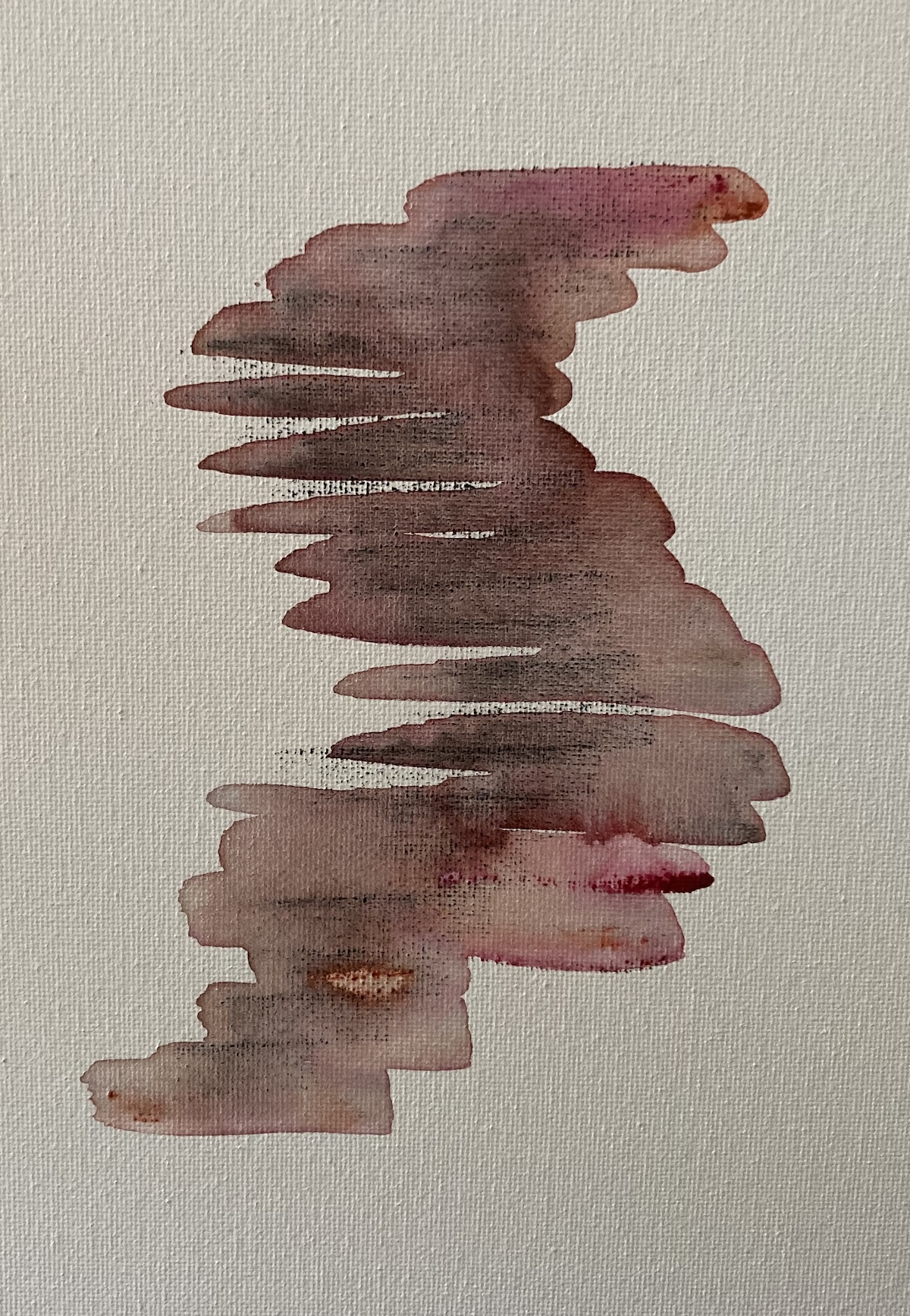“Ours is a culture based on excess, on overproduction; the result is a steady loss of sharpness in our sensory experience… What is important now is to recover our senses. We must learn to see more, to hear more, to feel more. Our task is not to find the maximum amount of content in a work of art, much less to squeeze more content out of the work than is already there. Our task is to cut back content so that we can see the thing at all.” -Susan Sontag
In Susan Sontag’s 1964 essay, “Against Interpretation,” she provides a new framework for appreciating artworks, one that explicitly denies the need for critical assessments of the works in question. Sontag wants us to experience art and be enlivened by it. She argues that to overanalyze it is to diminish it.
Oddly, I sometimes find myself interpreting my paintings after I make them (as was the case with the new painting posted here). When I am in the act of making a painting, I don’t want to think too much. Ideally, I let the brush guide me and when this occurs and things go well, the paintings somehow have the power to inform me about their meaning.
Back to Sontag’s famous essay… I love that an esteemed writer and intellectual is advocating for less thinking and more seeing, hearing, and feeling. I think artists and all makers can learn from her. “What’s important now is to recover our senses.” Thus, when you’re making a painting, running for public office, or launching a new product, ask how you’re helping the people in your orbit to see, hear, and feel more.
Marketing is often described as an art and science. I’m good with this description, but I’d like to emphasize that the art part of the equation requires a different sensibility. Instead of looking for “triggers” that will “lock in” the “target,” you’re looking for big ideas that will touch and move people. Moving people to care and to believe comes before moving them to buy, vote, join, or give.
Sontag also makes a salient point about the need to cut back on content. We, the inhabitants of these Internets, have been sold a bill of goods when it comes to the call to publish persistently or perish. By flooding our readers, customers, or constituents with too much matter, we’re making it harder for them to discern what matters.

